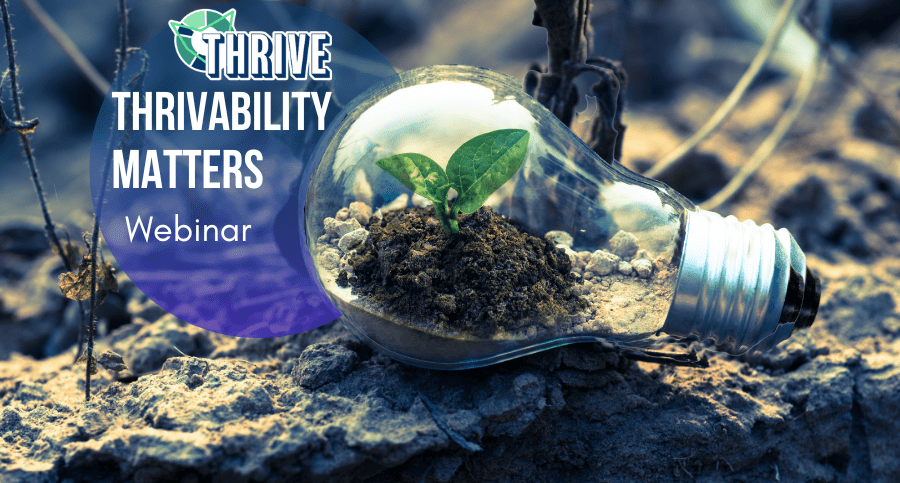The THRIVE project would like to extend our warmest gratitude to Alexandra Harrison for giving a guest presentation at our November Thrivability Matters webinar. The theme of this webinar was United Nations SDG7: Affordable and Clean Energy.
About our speaker

Alexandra Harrison from juwi Renewable Energy Pty Ltd. presented an informative presentation on “Decarbonising Mining & Steel Manufacturing”. She works in the renewable energy construction space. She has contributed to many large-scale projects (over 600 megawatts). Her construction portfolio consists of solar PV, onshore wind turbine, and battery storage projects. These have included on- and off-grid connections, and hybrid systems.
She graduated from the Queensland University of Technology with a Bachelor of Engineering (Mechanical), and the University of Queensland, having previously studied Pure Mathematics. Between these studies, she was a secondary school teacher for 10 years. Through this, she has educated future generations of young people. She started dreaming of a world where emissions reduction and decarbonisation is normal and accepted. This would allow us to live sustainably.
Summary of the webinar
Alexandra Harrison on the topic of Decarbonising Mining & Steel Manufacturing
The THRIVE Project is an organisation that seeks to drive action for a thrivable future. Unlike sustainability, where we preserve how things are, thrivability involves changing how we live for the better. Given how our electrical grids often harm the climate, we are pleased to see people such as Alexandra showing us how we can clean our industries through technology.
As governments in Australia tend to lag behind in reducing emissions, she shows the need for businesses to act to reduce their impacts. To reach net-zero emissions by 2050, AEMO, the Australian Energy Market Operator, plans to shut down all coal power plants by early 2040. Renewables are due to replace them, however, switching away from fossil fuels is harder for some industries than others. Mining and metal manufacturing are two major examples.
One of the biggest takeaways from this is the need to reduce emissions. She discusses several ways that these traditionally fossil-fuel heavy industries can lessen their impacts while still being able to operate. Some of these include electric mining transports, powering sites through renewable energy, and technologies to reduce emissions in steel manufacturing. These methods should help relieve their impacts on our precious Earth, and show how new technologies can make a difference.
CONCLUSION
Alexandra also took questions from the audience. She pointed out some of the challenges behind implementing renewable power in mining and manufacturing, and how we can manage the impacts of battery waste, among others.
We are grateful to our audience for asking so many questions. We hope that in the future, we can speak to Alexandra again, so that we may ask these. Meanwhile, she has uncovered many possible solutions to help our carbon-intensive businesses be less harmful. Alexandra’s full presentation can be seen here.
If you missed out on the presentations or the live Q&A session, you could view the recording on our YouTube channel once it’s released.
Thanks, and do keep on thriving!
SUBSCRIBE TO OUR NEWSLETTER
GOT A QUESTION ON THIS TOPIC?























